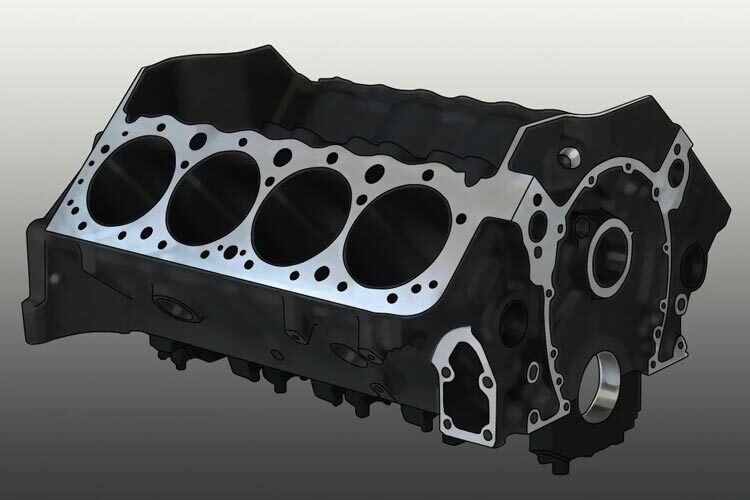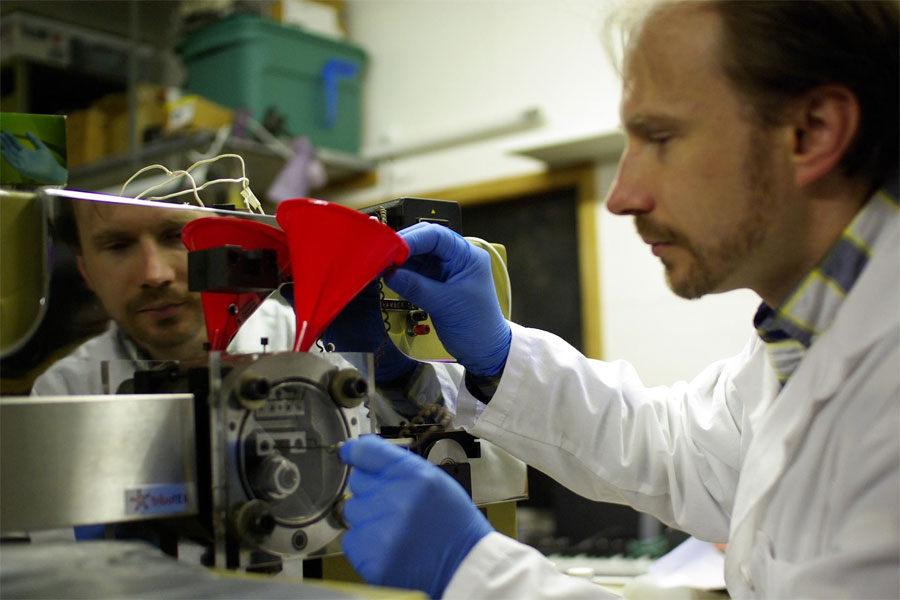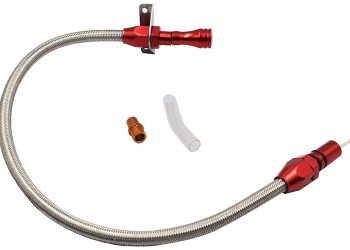Your engine block is a solid piece of metal, probably made of aluminum or, more commonly, high-quality iron. There are cylinders inside the engine block, perfectly round and smooth so that the pistons can be moved up and down with very little friction (of course, lubricated with oil).
Below the oil pan is a crankshaft that rotates under the force of your pistons. And since all this moving metal generates a ton of heat, a water jacket is also inserted into the engine block. The engine coolant flows through the water jacket to the radiator, removing the heat from the electric shock.
Symptoms of a cracked engine block include excessive heat, blue or grey smoke, or poor performance. Usually, this is due to less cold, extreme weather, or more heat due to high pressure. Be sure to resolve this issue quickly, or you may run out of gasket.
Signs of Cracked Engine Block
Overheating
One of the first signs to see is the engine overheating. A crack is a great place to escape fluids such as coolant and antifreeze. Both of these liquids are necessary to keep the engine at maximum temperature.
When they can’t move around the whole block, they can’t do their job. See red or unknown low cooling level on temperature gauge for knowing the temperature level of your car. You know that ignoring the engine, which is running hot, will only make matters worse.
Fluids Mixing
One way to tell if your engine block is cracked is to check the bottom of the oil cap. Look for milky, white gums, which signal that the oil is getting into the coolant. These two substances pass through different parts of the block, so the only way to mix them is if there is a crack in their connection.
If you see a build-up under the cap, you may also see a drill of liquid under your car, which may suggest a leak.
Smoke From The Underground Hood
The blue or grey smoke below the hood indicates another sign of a cracked engine block. The only place you should notice smoke coming out is through the exhaust pipe. If smoke comes from somewhere else, most probably there is some crack in the block or engine.
Of course, if this happens, you will likely have other symptoms, such as poor performance, leakage, or overheating.
Causes of a Cracked Engine Block
Low Coolant
The most common cause of cracks in the engine block (according to most mechanics) is due to excessive heat. As a result, it expands and produces microscopic whispers that grow as the problem continues. The purpose of passing through the coolant block is to keep it within the safe temperature range.
If you are running low on engine coolant, then there is nothing to stop the heat from reaching dangerous levels. For this reason, keep an eye on the coolant gauge and increase it when it is low.
Excessive Pressure
You can also work harder to stop your engine and crack it. Things like superchargers and turbochargers can increase performance, but they also increase the stress on the block. Directly from the factory, the engines are built to run at the maximum level. Therefore, if you decide to include exterior parts, be sure to stick with OEM products to reduce the risks.
Also, be careful not to put too much pressure on your car motor while loading or unloading the trailer. Extra stress may not be the main reason why the block may crack, but it may contribute. Be sure to consult your mechanic manually for relevant details of your model.
Water Pump Failure
The engine is returning to the main cause of block cracking, i.e., overheating. Consider your water pump, which is in charge of circulating the coolant through the block to prevent it from overheating. Signs that your water pump is failing include a cold coolant, the sound of a cry coming from under the hood, or steam coming from your radiator.
Most water pumps live between 30,000 and 100,000 miles. So, if you have never had a problem with this but you always be ready for this
Risks Associated While Driving With A Cracked Engine Block
Electrical Shorts
Ignoring a cracked engine block can do a lot of damage. One of them is an electrical short. As you may have guessed, these types of problems are best avoided because of the difficulty in solving them. It happens when it happens.
The high electric shorts pressure coolant will leak out the surrounding component. But there is also a fuse box to consider, which can affect the entire system.
Depressed Cooling System
When your cooling system becomes depressed, it can cause the coolant to boil. Which, of course, made the video an overnight sensation? When it is not working as it should, it does not cool the whole block properly, which can lead to a blown head gas kit.
Costs And Methods Of Repairing A Cracked Engine Block
There are two types of cracks, internal and external. The first is invisible from the outside and usually leads to the dissolution of the fluid inside the block. The second type is when you notice a leak of oil, coolant, or antifreeze.
Remember that the engine path starts as a piece of metal, whether it is aluminum or high-quality iron. Because of this, when you repair it, the area is never as strong as it used to be. Let’s take a look at the repair methods:
Re-welding
Depending on the severity of the crack, you may be able to seal it with an arc welder. However, it is important to note that this can lead to blocking some other parts. The most important factor contributing to the cost of repairing an engine block is labor, which can reach up to $100 per hour.
Cold Metal Stitching
There is also the option of sewing metal together, just like you shed tears in clothes. The problem is that the sewing itself is sensitive to temperature changes, which is why it is not always the best solution. Repairing a broken engine block is also a more expensive option due to time constraints and difficulty performing.
Commercial Sealers
If you have a quick crack in your engine block before it gets too big, you will probably be able to use a commercial sealant. This type of product integrates into the cooling system and seals the gap. But, if it is built into something bigger, you will have to resort to one of the other options to repair the cracked engine block.
Frequently Asked Questions About Cracked Engine Block
Is it Covered Under Warranty?
If your car is still under your manufacturer’s warranty, it is possible to cover it, as well as for extended coverage. If you are out of your warranty, the best check is to see if there is an open memory. However, if the cause comes from an addon like Supercharger, it will not be valid.
Can I Sell A Car With A Cracked Engine Block?
Of course, make sure you protect yourself. Hopefully, it is always better to disclose any known issues to the buyer instead.
Is It Possible To Repair A Cracked Engine Block?
It depends on the vehicle. If the cost of repairing a cracked engine block exceeds the cost of installing a rebuilt engine instead, then no, that’s not the case. The price of your car is the same, and if the fixing cost is much higher than its price, you are likely to get rid of it.
Conclusion
Cracked engine blocks are not a minor problem, but that doesn’t mean you have to get rid of your car right away. Sometimes, minor cracks can be easily fixed with the use of commercial sealant without tearing the engine.
Other times, major repairs are needed and will get you a hefty refund. Either way, you should evaluate your specific situation to determine if you are better off repairing the car or just selling it.














